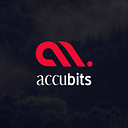Healthcare IT consulting services & solutions
An overview on how healthcare IT consulting services & solutions helps us overcome the roadblocks in the healthcare industry.
Today, people have begun to expect a lot from healthcare. They demand quick, accurate and cost-effective care delivery along with a seamless omni-channel experience (social, in-person, customer care, web and mobile). This means that hospitals and health organizations must learn to adapt to the advancements in technology and adopt suitable healthcare IT consulting services and solutions to improve the quality of their healthcare.
Healthcare solutions refers to knowledge-based, decision-support IT programs that offer assistance, guidance and feedback in the healthcare industry. The market value of healthcare solutions is projected to reach around $29.9 billion by 2023, with a CAGR of 7.4% from 2018 to 2023. This article highlights the benefits of using such software solutions in health and how to go about it.
Take a look at how technology is changing the course of the pandemic spread all over the globe:
Healthcare IT consulting services & solutions that deliver accurate results
According to The World Economic Forum’s most recent updated research report over 1,50,000 people die each day all around the world. But by adopting the right cross-functional and insight driven healthcare consulting services and solutions, we are able to reduce this death count to a considerable extent.
A few such healthcare solutions that would helps us in this aspect
By integrating healthcare solutions in the healthcare industry, we are able to create a much safer environment with low death rate. As such healthcare organizations are able to automate everything from back-office operations to real-time admission appointments.
EHR (Electronic Health Records) Software
EHR is a computer system that helps healthcare providers manage patient medical records and automate clinical workflow. Patient data like personal information, medical charts, and medications can be stored in a digital format and accessed by authorized users within a secure digital platform.
Benefits -
- Cost efficient: EHRs are completely paperless. This reduces the amount of paperwork and the required storage space.
- Enhanced patient care: Using EHRs, doctors can share patient information, which makes the prescription process quicker and more accurate.
- Increased efficiency: Unlike paper records, EHRs provide quick access to patient information and centralized chart management.
E-prescribing software
Using this software, doctors can immediately send prescriptions to pharmacies. This prevents any misunderstanding that may occur through handwritten prescriptions.
Benefits -
- No prescription errors: E-prescribing software reduces any errors caused due to illegible handwriting.
- Streamlined prescriptions and more time for patient care: It allows for constant access to a patient’s medication history. Furthermore, medications can be cross-referenced and doctors can check them automatically to avoid harmful combinations.
- No loss of prescriptions: As the prescriptions are sent directly to the pharmacy, there is no chance of any loss to occur.
Hospital management software
Hospital management software (HMS) deals with all patient data, doctor and medical staff information, and hospital billing. An HMS system can manage every department in a hospital like receptions, labs etc. This improves processing efficiency.
Benefits -
- Increased patient satisfaction: An HMS manages a patient’s prescriptions and treatment history, handles billing, tracks the availability of beds, and more. The software reduces time spent on administrative processes so medical staff can give their full attention to patient care.
- Better data management: Medical staff may find it difficult to manage all patient records, lab results, billing etc. An HMS is a centralized system that allows medical practitioners to find information in just a few clicks.
- Improved efficiency: Since an HMS automates administrative processes, it avoids problems like fatigue and inaccuracy.
Healthcare CRM
Using healthcare CRM software, organizations can obtain, develop and maintain customer relationships in a more efficient manner. A CRM helps health workers in the management of patient data, provides patients with required information, and helps in developing market strategies that are suited to customer needs.
Benefits -
- Enhanced patient care: CRM software stores patient data such as test results, treatment history, and diagnoses. This allows doctors to have access to patient records immediately, so that the patient care process is faster and more efficient.
- Automated workflow: A medical CRM automates healthcare operations like patient referrals, billing, and prescriptions.
- Patient outreach: A healthcare CRM provides data on patient preferences. Organizations can use this to improve their marketing strategies.
There are many other healthcare solutions that can be used by health organizations to improve their operations. They can help medical staff with processes like medical equipment management, appointment scheduling, billing, medical research, imaging, visualization and more. When you choose an IT healthcare solution provider, make sure that they have ample experience in the field and cross-check their references. Taking advantage of such IT solutions can help you enhance patient experience and improve the quality of your healthcare services.
To get a much better understanding of this topic, the below article would be much useful for you:
